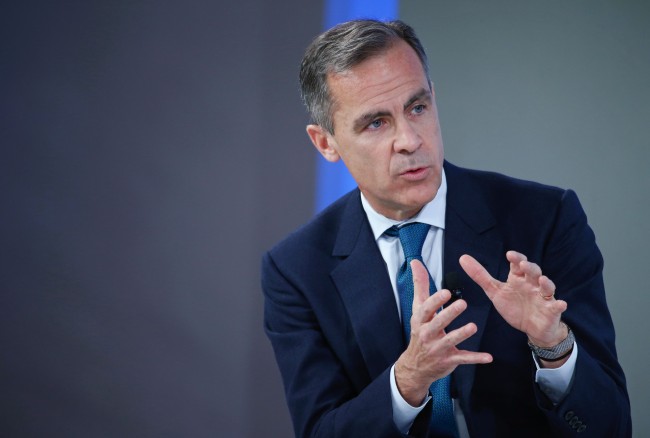The Bank of England could cut interest rates and inject billions of pounds into the financial system as early as Thursday as policymakers seek to prevent Britain sliding into recession after the EU referendum, reports The Guardian.
Under pressure to stem further falls in sterling, Mark Carney, the governor, is expected by financial markets to halve the 0.5 per cent base rate on Thursday and reignite the Bank’s quantitative easing programme.
Speculation has intensified in recent days after Carney dropped heavy hints that action would be needed to turn around an economy suffering badly as a result of the vote to leave the EU.
Several City economists said it was crucial for the central bank to step in and maintain the flow of cheap credit to the economy at a time when business and consumer confidence had fallen to levels last seen after the financial crash.
A slump in the pound to a 31-year low has also undermined confidence among City investors concerned that the UK’s growth prospects will be damaged by leaving the single market. Markets have put an 80 per cent probability on a move by the Bank by Thursday.
Howard Archer, chief economist at the consultancy IHS Global Insight, said: “With the UK economic outlook weakened by the Brexit vote, there can be little doubt – if any – that the Bank of England will enact some stimulus following the July MPC [monetary policy committee] meeting. The only question really seems to be what action will the MPC take?”
Carney said in a speech last month that the loss of confidence highlighted by a string of negative surveys meant “some monetary policy easing will likely be required over the summer”.
A closely watched consumer confidence index from market researchers GfK last week recorded the biggest drop in sentiment for 21 years, following the Brexit vote.
He also highlighted the legacy of previous shocks that meant businesses and households were suffering from “economic post-traumatic stress disorder”.
Archer said it was likely the would add to the £375bn quantitative easing programme, which has been frozen for the last three years, and turn on the taps of its funding for lending scheme, offering cheap loans to banks for mortgage lending.
But the Bank’s nine-member MPC, which will announce its decision at midday, could disappoint after the pound enjoyed a rally this week that traders largely credited to the swift appointment of Theresa May as prime minister, ending the recent political uncertainty.
The stock market has rallied over the last 10 days, regaining and more all its losses in the immediate aftermath of the referendum’s shock result.
Concerns that Britain would come under pressure to trigger the EU’s exit clause, article 50, and start negotiations early were scotched by May’s elevation to the top job. Her supporters made it clear the new government would take its time before initiating talks with Brussels.
The Bank’s regulatory efforts to shore up confidence may also be seen as a sufficient stimulus. Carney announced after the vote that Threadneedle Street would take steps to release up to £150bn worth of lending to households and businesses by relaxing regulatory requirements on the banking sector.
The MPC is not expected to begin a full review of the economy until its August meeting, by which time some of the smoke caused by the Brexit vote will have cleared.
- A group of economists who backed Brexit said dire predictions for the UK economy were “grossly exaggerated” and accused Carney and the chancellor, George Osborne, of issuing unjustified warnings over the damaging economic impact of uncertainty.


